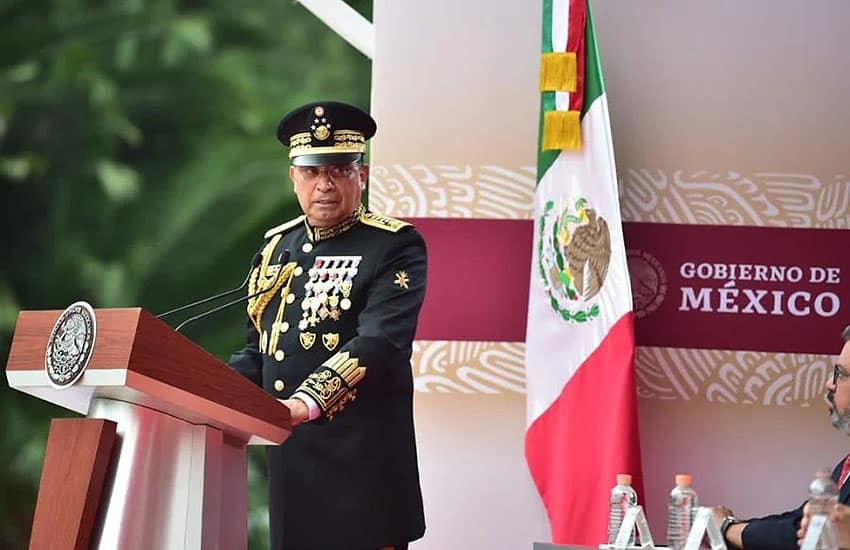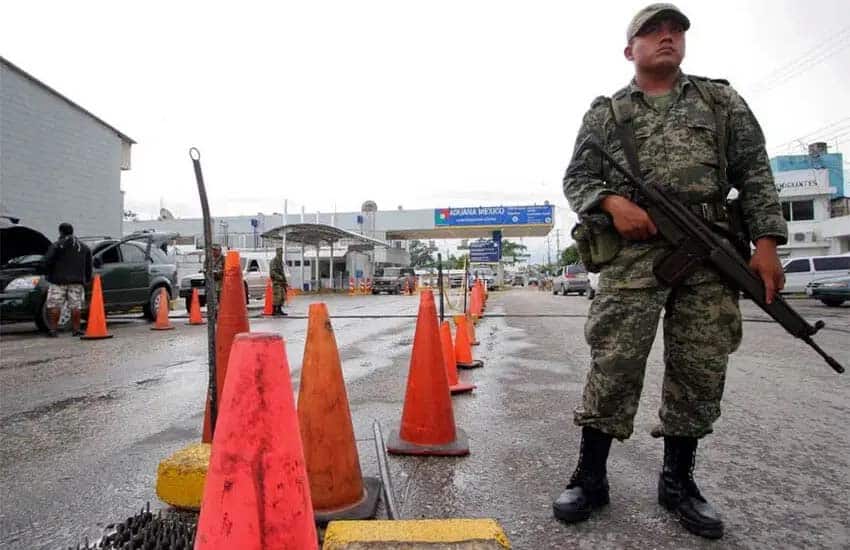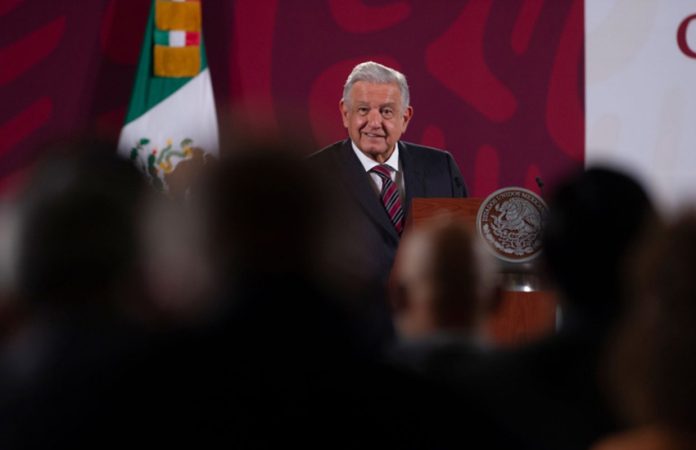The ongoing presence of the armed forces on the nation’s streets is essential to guarantee peace, President López Obrador said on Wednesday as lawmakers in the lower house of Congress prepared to vote on a constitutional bill that would allow the use of the military for public security tasks until 2028.
In a late-afternoon vote, the Chamber of Deputies passed the bill with 335 votes in favor coming from members of the Institutional Revolutionary Party, Morena, the Labor Party (PT) and the Green Party. The opposition only managed 152 votes against the bill, which came from members of the National Action Party, the Democratic Revolution Party, the Citizen Movement Party, as well as two opposition votes from PRI deputies. The bill will now progress to the Senate.
However, the bill was slightly amended before it came to a vote, after Labor Party Deputy Reginaldo Sandoval requested that the military be used for civilian security tasks only until 2028, not 2029, as had been proposed.
López Obrador, who said last week that he had changed his mind about the need to use the military for public security, had told his regular news conference Wednesday morning that the majority of lawmakers were acting “responsibly” with regard to their consideration of the PRI’s proposal.

“I congratulate [the lawmakers who support the bill] … because it’s about guaranteeing peace and tranquility in the country,” he said.
The president said that the government needs more time to “consolidate” the National Guard, the three-year-old security force that superseded the Federal Police. He emphasized the need for the National Guard to be under the control of the army – the Senate passed a bill to that end last Friday – to combat corruption, including collusion with criminal groups, a crime of which former security minister and Federal Police chief Genaro García Luna is accused.
“What we want is to professionalize, institutionalize and moralize the National Guard, which will [eventually] be the most important institution for guaranteeing public security,” he said.
López Obrador railed against National Action Party (PAN) lawmakers opposed to the bill presented by the PRI, using a range of pejoratives including “corrupt,” “irrational” and “hypocritical” to describe them.
“They’re admirers of fascists, supporters of heavy-handedness, practitioners of repression, torture, massacres and serious human rights violations, and now they want to appear as defenders of freedom and human rights,” he said.
The objective of the bill, he reiterated, is “to use the army, navy and National Guard [for public security tasks] so that we can live in peace, so that the main human right – the right to life – is guaranteed.”
Extending the government’s authorization to use the armed forces for public security is “not just a duty” for lawmakers but also a “great joy,” López Obrador claimed.
Mexican and international nongovernmental organizations have long warned of the risks of using the armed forces for public security tasks, noting that soldiers and marines have committed or allegedly committed a range of human rights violations, including extrajudicial killings, while carrying them out.

The Washington Office on Latin America (WOLA) said in a 2021 analysis that the results of the militarized war on crime, launched by former president Felipe Calderón almost 15 years ago, have been “catastrophic.”
The analysis pointed out that Mexico had recorded some 350,000 homicides since Calderón deployed the armed forces to combat organized crime in December 2006 and noted that López Obrador has failed to demilitarize public security despite his criticism of the militarized model before he became president and his pledge to take the armed forces off the streets.
“On the contrary, he has deepened various aspects of the militarized model,” wrote Stephanie Brewer, WOLA’s director for Mexico.
Homicide numbers reached their highest level ever in López Obrador’s first full year in office – 2019 – and have only decreased marginally since then. Despite a 9.1% decline in murders in the first half of 2022, the president’s six-year term is on track to be the most violent in recent decades.
While many organizations are concerned about the ongoing – and enhanced – militarization of Mexico, the National Human Rights Commission (CNDH) said Tuesday it wouldn’t file any legal challenge against Congress’ approval of the reform that puts the National Guard under military control.
The commission said it understood the situation that justified the change and asserted that the security force wouldn’t be stripped of its civilian nature despite being commanded by the army in both an administrative and operational sense.
“Given the situation of violence that afflicts the country, this National Commission believes the intervention of the National Defense Ministry [in the administration and operation of the National Guard] … is acceptable from a human rights point of view,” the CNDH said in a statement.
Although López Obrador has assigned a range of additional non-traditional tasks to the military, including infrastructure construction and the administration of customs and ports, the rights commission charged that militarization has decreased rather than increased during the current term of government.

“What we’re living through today is a new process of transformation,” added the CNDH, which is led by Rosario Piedra Ibarra, an ally of the president.
López Obrador, who frequently stresses that his government is very different than those that preceded it, has claimed that federal authorities, including the military, no longer violate human rights. That assertion has been rejected by human rights experts and activists, including the international nongovernmental organization Human Rights Watch, which said earlier this year that a wide range of human rights violations have continued since the president took office.
For his part, National Defense Minister Luis Cresencio Sandoval defended the integrity of the armed forces at a military event on Tuesday, saying that under the current leadership, they always act in accordance with the law and for the good of the country.
- The original version of the story has been updated to reflect the vote of the federal Chamber of Deputies on Wednesday.
With reports from El Financiero, La Jornada, Proceso, El Universal, Aristegui Noticias and Animal Político
